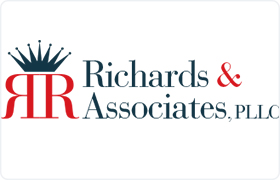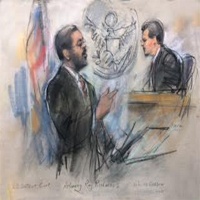Belleville RICO Act Lawyer, Michigan
Sponsored Law Firm
-
 x
x

Click For More Info:
-
Richards & Associates, PLLC
200 East Big Beaver Road Troy, MI 48083» view mapCriminal Defense Accomplished Criminal Defense Attorney
If you face criminal charges, you deserve an experienced defense lawyer who has a reputation for winning the tough cases.
800-844-5250
Not enough matches for Belleville RICO Act lawyer.
Below are all Belleville Criminal lawyers.
Thomas S. Piotrowski
✓ VERIFIEDCriminal, Estate, Felony, White Collar Crime, Misdemeanor
Thomas Piotrowski is an experienced and aggressive litigator who handles cases in and around the Detroit metro area. Since graduating cum laude from t... (more)
Darin Kurt Weinberg
Divorce & Family Law, Criminal, Bankruptcy, Accident & Injury
Status: In Good Standing
FREE CONSULTATION
CONTACTWilliam Maze
Traffic, Domestic Violence & Neglect, White Collar Crime, DUI-DWI
Status: In Good Standing
Murray A. Duncan
Family Law, Divorce & Family Law, Criminal, Bankruptcy & Debt
Status: In Good Standing Licensed: 40 Years
Robert Keyes
Bankruptcy & Debt, Credit & Debt, Bankruptcy, Criminal, Traffic
Status: In Good Standing Licensed: 19 Years
FREE CONSULTATION
CONTACTKristina Sheree Nunn
Dispute Resolution, Lawsuit & Dispute, Labor Law, Criminal
Status: In Good Standing Licensed: 17 Years
George E. Long
Landlord-Tenant, Family Law, Juvenile Law, Criminal, Insurance
Status: In Good Standing Licensed: 9 Years
Kirk W. Tabbey
Biotechnology, Criminal, Insurance, Household Mold
Status: In Good Standing Licensed: 43 Years
 Ray Richards Troy, MI
Ray Richards Troy, MI AboutRichards & Associates, PLLC
AboutRichards & Associates, PLLC Practice AreasSpecializations
Practice AreasSpecializations

